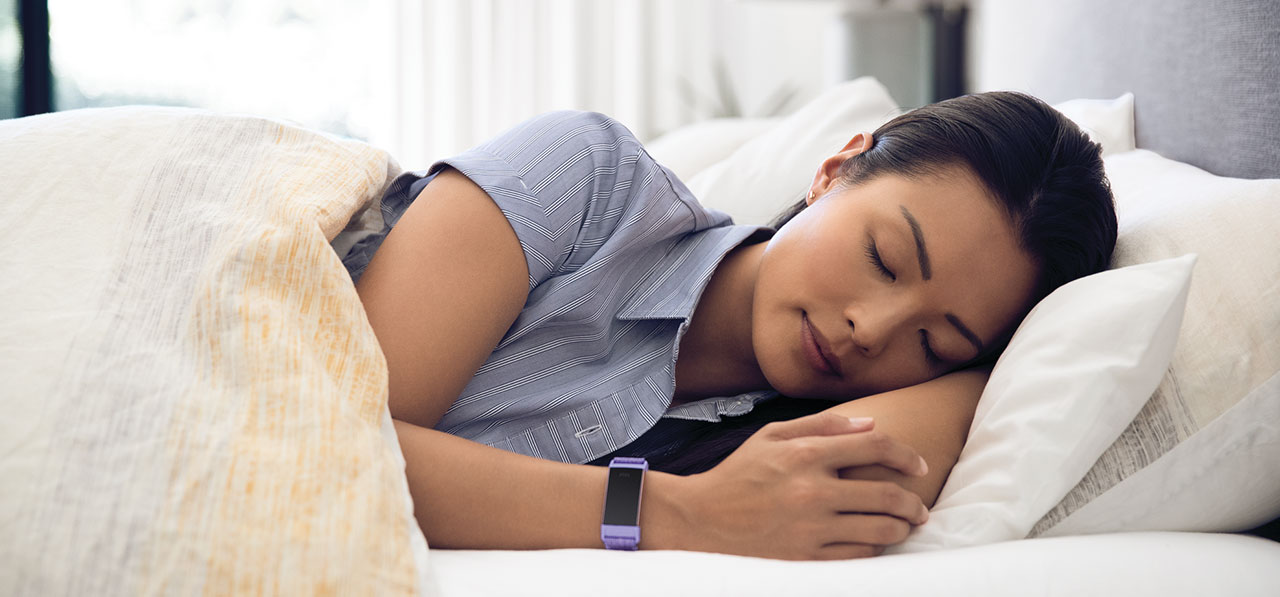How Does Fitbit Track Sleep and What is the Fitbit Sleep Score?
With all the changes in routine and activity levels, sleep patterns for you and your employees may be fluctuating more than normal. Sleep is an essential component of health, and its timing, duration, and quality are critical determinants of a person’s overall health, playing a role in metabolic and emotional regulation, performance, and memory.
The best way to know if you are getting enough zzz’s is not to guess, but to track it. Your employees can easily track their nightly sleep with a Fitbit device. Doing so can help you look for patterns and recognize when you need to get more rest and recharge.
Sleep Stages and the Fitbit Sleep Score
Fitbit’s sleep feature estimates sleep stages using a combination of movement and heart-rate patterns. When you haven’t moved for about an hour, your tracker or smartwatch assumes that you’re asleep. Additional data, such as the length of time of movements that are indicative of sleep behavior (such as rolling over), can also help confirm that you’re asleep.
While you’re sleeping, your device tracks the beat-to-beat changes in your heart rate, known as heart rate variability (HRV). These numbers fluctuate as you transition between light sleep, deep sleep, and REM sleep stages. When you sync your device in the morning, Fitbit uses movement and heart rate patterns to estimate sleep cycles from the previous night.
A quick way to gauge your sleep is the Fitbit Sleep Score, which is based on heart rate, the time spent awake or restless, and sleep stages. The overall sleep score is a sum of your individual scores using three components: sleep duration, sleep quality, and restoration, for a total score of up to 100. In the restoration component, I typically check the estimated oxygen variation graph each day. Blood oxygen saturation normally fluctuates, but high variations in the estimated blood oxygen saturation levels can indicate that a person had variations or disturbances in breathing during sleep. So I find it useful to keep an eye on it as one of my personal daily wellbeing checks.
Source: “How is my sleep score calculated in the Fitbit app?”
Most Fitbit users get a sleep score between 72 and 83. Typical sleep score ranges are:
- Excellent: 90-100
- Good: 80-89
- Fair: 60-79
- Poor: Less than 60
Get Better Sleep with Fitbit Premium Sleep Programs
Given the current circumstances, we know how hard it is to focus on your health and wellness. But staying active, eating nutritious foods, sleeping well, and managing stress are critical to boosting your immunity and your mood. To help support you, Fitbit is offering 40+ new pieces of Premium content free in the Fitbit app. Fitbit Premium offers several tools that may help you get better sleep, including a daily sleep score breakdown that can help you understand where you can improve your sleeping habits and receive personalized guidance.
Fitbit Premium also has guided programs developed with sleep experts, including: Habits for Restful Sleep, aimed at helping you build better daytime habits to help achieve deeper sleep at night. Another program in Premium is Get More Sleep, which may help you improve your nighttime routine and work towards longer sleep with goals and relaxation tools.
Better Sleep = Better Work Productivity
Finally, remember that sleep supports productivity and is essential to a healthy lifestyle. It’s important for your employees to know how the amount—and type—of sleep they get each night may affect them the next day as they work. You can help your employees do their best work by supporting healthy sleep habits and giving them the tools to understand their sleep patterns. Sweet dreams!
